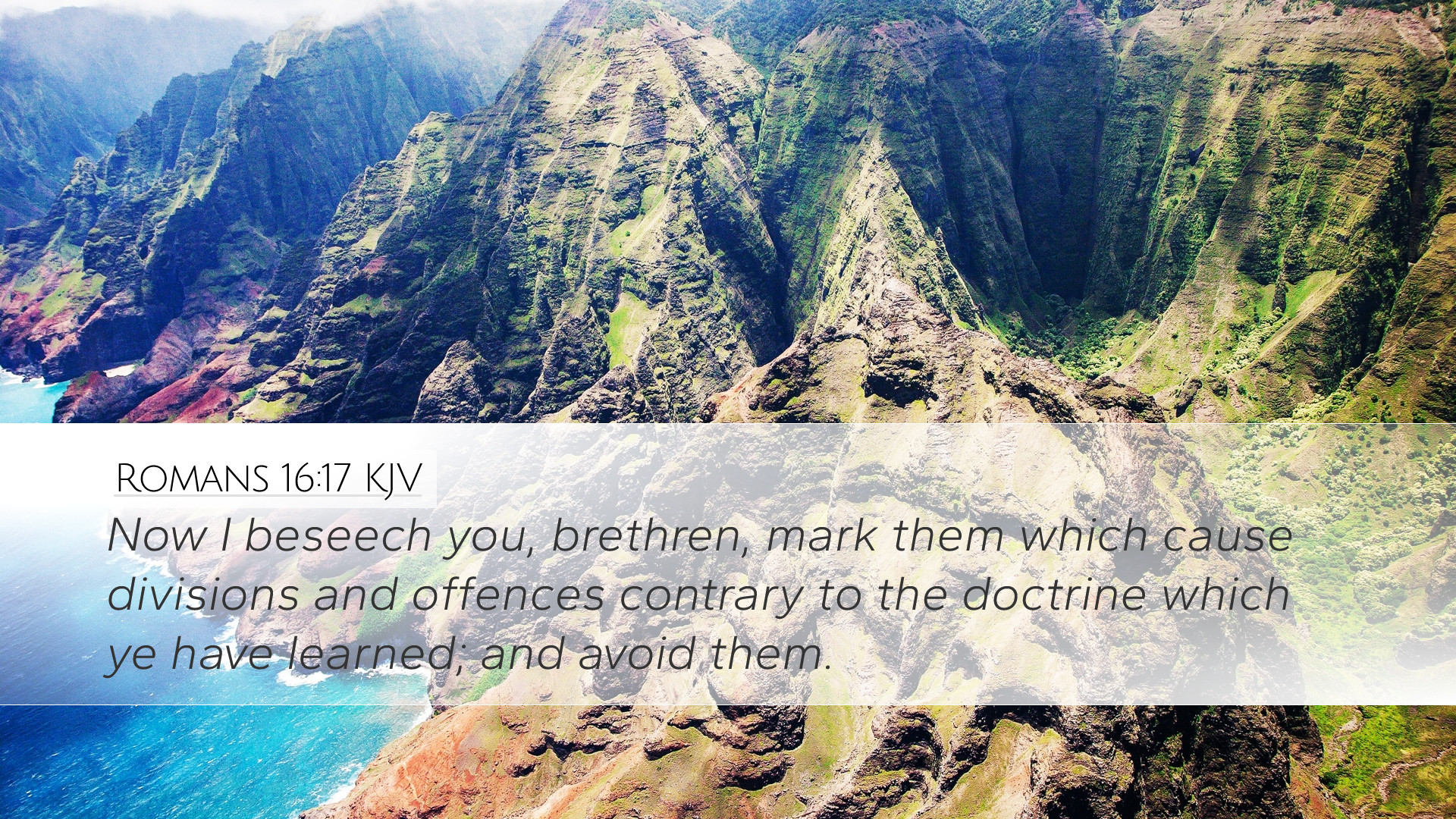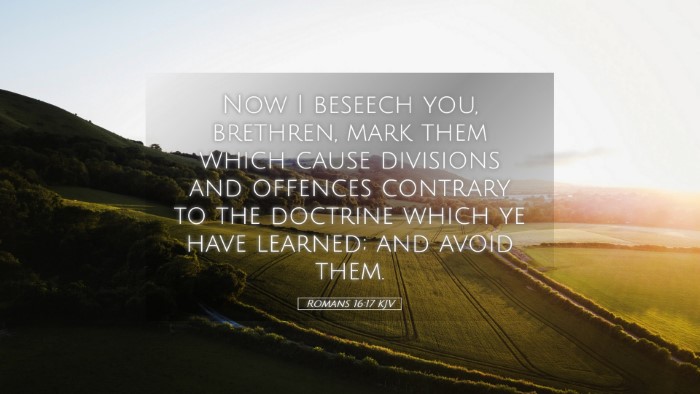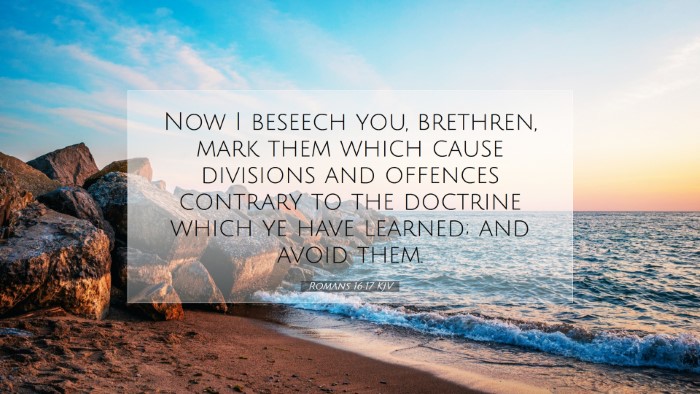Commentary on Romans 16:17
Romans 16:17 (KJV) reads: "Now I beseech you, brethren, mark them which cause divisions and offences contrary to the doctrine which ye have learned; and avoid them."
Introduction
This verse serves as a critical warning from the Apostle Paul, emphasizing the importance of unity within the church. The call to "mark" those who cause divisions is a strong directive that carries significant weight for believers. This commentary draws from various public domain scholars, providing insights and implications of this admonition for contemporary Christian life.
Exegesis of the Text
1. The Call to Action: The word "beseech" indicates an earnest appeal. Paul is not merely providing optional guidance; he is urging the church to take decisive action against those who disrupt the unity of the body. Both Clarke and Barnes emphasize that the tone of this plea highlights the gravity with which Paul regards these divisions.
2. Identifying Divisive Individuals: The instruction to "mark them which cause divisions" is crucial. According to Matthew Henry, this involves recognizing and eyeing those who sow discord, thus taking a proactive stance not only in personal conduct but also in communal vigilance. Such discernment is vital to maintaining doctrinal integrity.
3. Offences Against Doctrine: The phrase "contrary to the doctrine which ye have learned" signifies the foundational teachings of the Apostolic faith. Adam Clarke notes that deviation from these teachings invariably leads to chaos within the church. Therefore, it is critical for believers to be well-acquainted with their doctrinal tenets.
4. The Importance of Avoidance: The latter part of the verse commands believers to "avoid them." This avoidance is not simply physical but also implies a withdrawal from their influence and teachings. Barnes elaborates on the enduring necessity for the church to maintain purity and sanctity by fleeing from those who propagate falsehoods.
Theological Implications
The theological implications of Romans 16:17 extend into various facets of church life and doctrinal teaching. Here, several key themes emerge:
- Unity vs. Division: The directive to mark and avoid divisive individuals underscores the significant theological principle of unity within the body of Christ. Divisions undermine the very essence of the church, which is to be one body with many members.
- The Nature of False Teachings: Paul's warning is a reflection of the reality that false teachings often lurk within the Christian community, subtly leading believers away from fundamental truths. Careful doctrinal teaching and sound hermeneutics are imperative for spiritual safeguarding.
- Responsibility of the Believer: Each believer holds a responsibility to discern the truth and uphold sound doctrine. This accountability promotes a culture of vigilance and collective care among church members.
Practical Applications for the Church
Romans 16:17 is not only a theological statement but also a practical guide for church life that carries several applications:
- Conduct Regular Teaching: Pastors and leaders should prioritize solid biblical teaching to ensure the congregation is well-versed in sound doctrine, as highlighted by Clarke.
- Create a Culture of Discernment: Encourage church members to engage in critical thinking regarding teachings and practices that may arise within the fellowship.
- Facilitate Accountability: Establish systems of accountability within the church to address conflicts and divisive behaviors promptly and biblically.
- Promote Restoration: While avoiding divisive individuals is crucial, the church should also strive to approach these situations with a spirit of grace, aiming for the potential restoration of errant members.
Conclusion
In conclusion, Romans 16:17 serves as a poignant reminder of the need for vigilance against divisive influences within the church. Drawing from the insights of revered scholars, we see that this verse not only calls for action against such individuals but also encourages a culture of unity and sound teaching. As the church continues to navigate the challenges of contemporary issues, the timeless wisdom found within this scripture remains foundational for maintaining the integrity and purity of the Christian faith.


